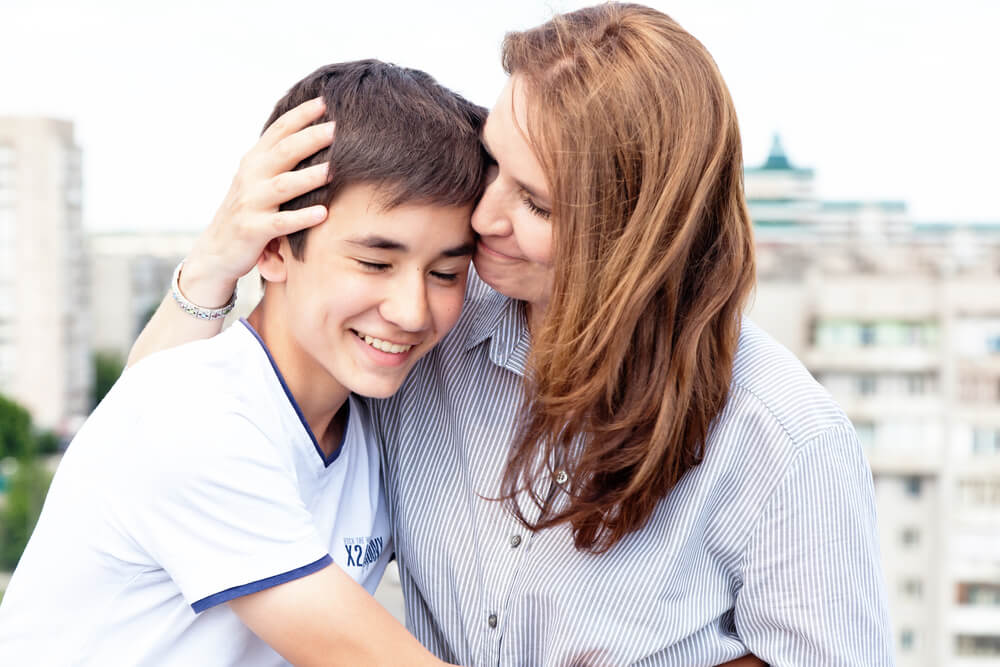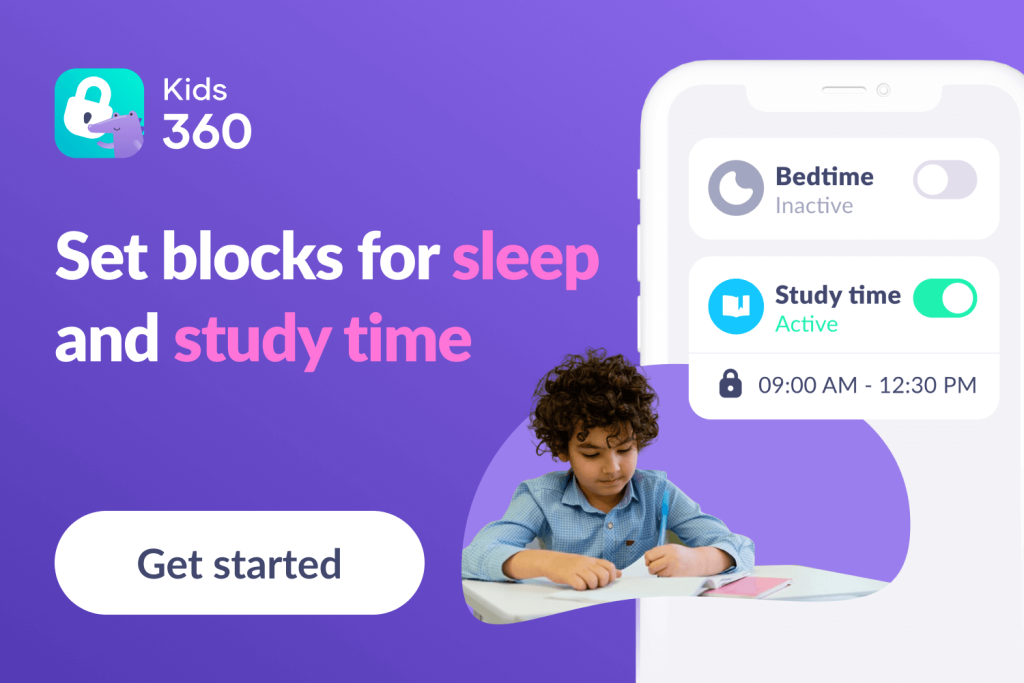Parenting the Teen Years: Strategies for Effective Discipline and Connection

Whether you have a teen in the household already or want to be prepared for the future, the question of how to discipline teenagers may be on your mind. Should you even punish teens—in a traditional sense—or is there a better way to both set and enforce healthy boundaries? What does positive discipline for teenagers and the concept of logical consequences look like in practice?
Below, we take a deep dive into the best discipline strategies for teens and ways to promote the sort of two-way respect that leads to a peaceful, happy home.
Contents:
- Why are the Teenage Years So Challenging?
- Should Teens Be Punished?
- Discipline Strategies that Work
- Types of Consequences for Teenagers
- Teen Discipline Dos
- Teen Discipline Don’ts
- The Benefits of a Teen Discipline Strategy
- Preventing Future Problems: Tips for Parents
- Be Mindful of Mental Health
- FAQs
Why are the Teenage Years So Challenging? Typical Teen Behaviors and the Reasons Behind Them

Motortion Films/Shutterstock.com
It’s fair to say that the teen years represent a particularly challenging time for parents. Even kids who’ve been the model of good behavior for years can, it seems, become moody, angry, and confrontational virtually overnight.
There are biological reasons at the root of many of these changes. For example, if your child now loves nothing more than staying in bed late into the morning, it’s not that they’ve suddenly become lazy. Experts agree that a teen’s natural sleep schedule is markedly different from that of adults and younger children. The teen body clock is generally set to sleep between around 1 am and 10 am, which is why it’s typically so difficult to rouse a teen for school in the morning.
Moodiness and irritability are also classic teenage behaviors and, again, there’s a biological reason behind this. All those hormones flying around can play havoc with your kid’s mood, causing outbursts of irritation, frustration, and general snarkiness. On top of that, your child is having to navigate a range of new thoughts, emotions, and feelings, which can feel both confusing and overwhelming. So it’s not surprising they’re not their former cheery, happy-go-lucky self.
It may be especially worrisome when your teen displays defiance or rebellion, possibly even getting into trouble at school. It’s important to remember that some element of pushing back against the rules and not wanting to be part of the “norm” is a normal part of the teenage years, as kids begin to explore their individuality and the boundaries of their world. As long as this doesn’t become excessive or dangerous, and they’re not getting into significant, regular trouble at school, you’ll be relieved to know that this is likely to be a short-term situation.
Ability to Recognize Emotions

David Pereiras/Shutterstock.com
А fascinating recent study suggested that a teen’s ability to recognize other people’s emotions goes downhill once puberty kicks in. Incredibly, some kids showed a 20% drop in the ability to recognize emotions by either words or facial expressions at around the age that puberty begins. Meaning that your teen may genuinely not understand that you’re upset with them!
The good news is that the study also revealed that things tend to get better on this score at about the age of fifteen. It’s thought that this is due to increased nerve activity in the brain during puberty—essentially, the teenage brain is “noisier,” making it more difficult for kids of this age to recognize others’ emotions and take appropriate action.
Read also: Things No One Tells You About Parenting a Teenager.
Should Teens Be Punished?
Let’s start by saying that discipline for teenagers should never involve physical punishment or serve to humiliate the child. These things are totally unacceptable, and parents must never deploy such means to discipline their teens or incorporate them into their parenting styles.
Rather, alternative disciplinary measures should be used to help put a stop to disrespectful behavior and enforce boundaries. Let’s take a look at some of these now.
Discipline Strategies that Work

Olezzo/Shutterstock.com
The Importance of Consistent Rules
To get started, it’s a great idea to hold a family meeting to establish a set of clear house rules. This is a positive way to put some clear boundaries in place. Ask your teen for their views and ideas, and listen to them carefully. You don’t have to necessarily incorporate them into the rules, but you may be surprised at just how sensible their contributions to the discussion are.
Make sure all the rules are reasonable and clear, and explain to your teenager why they’re so important. It’s also important to establish what will happen if your teen breaks a rule. This could be, for example, the removal of a privilege, such as access to a gaming device during the evening.
Use Natural Consequences
When it comes to teen discipline, tying a consequence clearly to a specific behavior can be the most effective way to teach kids that their actions have a real-world outcome. This means, sometimes, letting things play out. For example, if your teen refuses to study for a test, they will learn that they’re likely to get a poor score. Or if they spend their lunch money on a magazine, they’ll end up hungry during the day.
A natural consequence for teenagers who, say, break a household item by behaving recklessly would be paying for this item or its repair. An older child who doesn’t check with you before driving the family car could have their driving privileges removed for a set period. Having clear limits helps create a safe, predictable household environment that your teen will appreciate—even if they don’t express this fact!
Always Follow Through
At some point, it’s entirely likely that your teen will request an unearned privilege, or nag you for, say, a new (and unneeded) pair of sneakers or the latest video game. They may want to stay up later than usual on a school night or have friends over when you have plans as a family. Just because your teen acts up, and maybe even shouts or storms about, doesn’t mean you’re doing anything wrong. It’s vital to stay consistent. That pair of new trainers? Get creative and help them come up with some ways to earn the money they need to buy them, such as by doing extra chores or seeing if any local businesses are looking for occasional or weekend workers.
And if you remove a privilege, stick to your guns, no matter how frustrated your teen is with this situation. Consistent rules and consistent consequences are the foundation of effective discipline strategies for teens.
Keep Talking

Fizkes/Shutterstock.com
Maintaining open lines of communication is an essential element of your parenting role when it comes to setting boundaries and disciplining teens. It’s also a great way to teach kids the importance of talking openly to those they trust and not bottling up their feelings.
Adopting a compassionate, non-judgmental attitude is key. This makes it much more likely that your teen will come to you should they face a problem or have concerns around issues such as alcohol, drug use, or sex. An environment of open communication also means that your child will be more likely to respond cooperatively to any disciplinary actions you need to enforce.
Making Amends
If your teen has hurt someone, it’s important to create a plan to help them face up to their actions and make amends. Known as restorative justice, this is a key way to promote good values and punish a teen whose behavior has caused harm or distress to someone.
Apologizing is the first thing that needs to be done, whether written or verbal. Accepting responsibility for the behavior is essential, and to this end, your teen should, depending on the circumstances, make reparation. This could mean undertaking a task or chore for the person affected, or fixing something they broke.
Be Ready to Adjust the Rules
Kids grow up and change quickly, so it’s important to be mindful of adjusting your household rules and boundaries as your teen gets older and becomes more responsible. Whether it’s changing the rules around their curfew or access to devices, be ready to make alterations as necessary. This is also a great way to show your teen that you respect them and recognize their growing maturity.
Navigate Digital Discipline
As parents, addressing the challenges of disciplining teenagers in the digital age can be perplexing. Balancing the need for guidance without imposing restrictions is an ongoing struggle.
Try Kids360—a thoughtful application crafted to aid parents in fostering responsible tech use. This app serves as a bridge for constructive communication, allowing parents to collaboratively set boundaries and educate their teens about the importance of a balanced digital lifestyle. From screen time management to educational content filtering, Kids360 empowers parents to navigate the complexities of digital discipline effectively.
Obtain your child’s consent to use the Kids360 app and download it right now!
Stay Calm and Breathe!
When you have an angry teen shouting at you and stomping around, it’s entirely natural to want to shout back. Add frustration, worry, and hurt feelings to the potential mix, and it’s no surprise that your temper’s frayed. If you feel yourself losing it with your teenager, however, take a step back and breathe. Take yourself off to another room if you have to, to take a moment or two to calm down. Staying calm is important and will help your child feel safer and more stable: you’re the adult in the room, after all.
If things degenerate into a shouting match, your carefully planned-out discipline strategy will likely go out of the window—and you may say something you’ll regret later. Staying calm may be one of the most challenging tips on this list, but it’s also one of the most important.
Types of Consequences for Teenagers

BearFotos/Shutterstock.com
So now we’ve established that setting rules and boundaries for your teen is essential, with the consequence of stepping out of line, you may be wondering about the best types of consequences to deploy. Here are some of the most effective options:
- Loss of privileges such as access to devices, Wi-Fi, use of the car, or seeing friends for a set period.
- Natural consequences, as we discussed above. This generally involves not intervening (unless it’s unsafe to do so) and letting the consequences of an action, such as not studying for a tes,t naturally play out.
- Restitution. If, for example, your teen damages the neighbor’s fence by playing football in the front yard when they’ve been told to only use the back, they should mend the fence or pay for the repair.
- Additional chores. Assigning extra tasks or household chores to your teen tends to be an effective consequence for rule-breaking.
- Grounding. For many parents, this is the nuclear option! If you use grounding as a consequence, it’s important not to ground your child for too long and not to ban other forms of social contact with her friends during this period. While they’re not allowed to see them in person, allow your teen to message or have phone calls with their friends during the grounding.
Teen Discipline Dos
When it comes to disciplining and punishing your teen, here are some good practices to follow:
- Be a good role model yourself, demonstrating respect, self-care, and responsible behavior.
- Always listen and act respectfully towards your child. Encourage them to come to you if they have any problems or concerns, and tell them that you will always be there to help and support them.
- Set age-appropriate rules and boundaries—and accompanying consequences—and enforce them consistently.
- Make regular, quality time to spend with your teen. Family time could be a regular movie evening, a weekend walk, or simply time spent chatting at the end of the day.
- Don’t forget to praise your teen if you notice positive action or good effort. It’s important to break the cycle of only giving your child negative attention when they behave poorly.
- Be prepared to adjust the rules as your teen gets older and becomes (hopefully!) more responsible.
- Stay calm. And having a sense of humor will serve you well!
- Use applications that will ensure the safety of your child online (Kids360) and offline (Findmykids). But install them only after agreeing with your child!
Teen Discipline Don’ts
And here are the things that should play no part in a discipline strategy:
- Physical punishment, including smacking, slapping, pushing, or hitting.
- Shouting at your teen—although don’t beat yourself up if it occasionally happens. We’re only human after all.
- Humiliating your teenager in any way.
- Don’t label your teen as “bad” or “lazy,” etc. Separate your child from the behavior they are displaying.
- Always avoid allowing the situation to turn into a power struggle with your teen.
Related: How to Discipline a Child without Shouting, Belt, or Humiliation.
The Benefits of a Teen Discipline Strategy

SpeedKingz/Shutterstock.com
When you’re in the middle of deploying your strategy and your teen is acting up, you may be wondering just what the whole thing’s about. When the going gets tough and you need reminding of the benefits of disciplining your teen, here’s a list to read through:
- Helps teens adopt healthy, positive attitudes and behaviors.
- Instills self-confidence and raises self-esteem.
- Gives them better decision-making skills.
- Builds respect for themselves and their boundaries and values.
- Helps teens control their impulses.
- Develops an openness to learning from their mistakes.
- Instilling means to regulate their emotions and remain calm.
- Assists teens in making better and authentic connections with others.
Preventing Future Problems: Tips for Parents
Listening and maintaining open lines of communication with your child is one of the best ways to prevent—or mitigate—future problems with your teenager. Taking the time to listen to your child, without judgment, is so important: be curious about your kid’s life, and offer compassion when needed. Ask your teen about what they think is the best way to handle a situation or problem. Be sure to remain reasonable both in your expectations and discipline strategies. Having an overly restrictive approach can be counterproductive, resulting in your teen feeling trapped and therefore wanting to rebel more.
Being a great role model is key, too. Tips for going about this include limiting your own screen time, manifesting care and compassion, looking after your own health and well-being, and apologizing when you, yourself, have done something wrong.
Finally, be sure to spend plenty of quality time with your teen to help build a strong relationship in which your child feels comfortable speaking with you about any issues or concerns they have. With work and other commitments, this may seem challenging (especially if your teen is reluctant), but there are many ways you can build this time into even the busiest of weeks. Cooking together, getting out for a walk, and even playing a video game as a family are all great ways to enjoy each other’s company and strengthen bonds.
Be Mindful of Mental Health

LightField Studios/Shutterstock.com
While irritability, moodiness, and a change in sleeping patterns can all be signs of normal teenage life, it’s important to remain mindful of your teen’s behavior, to promptly spot signs of a problem. This is especially the case given the number of teens reporting issues with their mental health is currently increasing.
If your teen is displaying excessive mood swings or is consistently showing signs of anger, anxiety, or distress, for example, or wants to stay in bed all day, it’s important to seek advice or help from a professional. Remember that you know your child best, so trust your instincts if you’re worried that what you’re seeing is beyond “normal” challenging teen behavior.
Some of the symptoms of teenage depression to watch out for include (but are not limited to):
- Frequent tearfulness, crying, or sadness
- Feelings of hopelessness, or that everything is going wrong
- Lack of motivation
- Less or no pleasure in activities they used to enjoy
- Low energy
- Difficulty in concentrating
- Lowering performance in school
- Withdrawing from friends and family members
- Feelings of guilt
- Low self-esteem
- Anger, hostility, and/or irritability
- Difficulty with communication or relationships
- Self-harm
- Suicidal thoughts or actions
Seek professional help immediately if you’re concerned or spot any of the above signs in your teenager.
How to Positively Discipline Your Teen and Set Healthy Boundaries
There’s no doubt about it, discipline and punishment for teens is challenging. While some mild manifestations of poor behavior are likely to go away on their own—all those hormones rushing around could well be to blame—having a clear discipline strategy is essential. As well as helping to instill good values in your teen, this will also help keep them safe and result in a happier household overall. Even your teens themselves will likely feel safer and happier knowing that there are clear, predictable rules and boundaries in place—even if they don’t admit it!
What have you found to be the most effective discipline strategies for your teen? Have there been any that have surprised you with how well they work? Let us know in the box below—we’d love to hear your comments and tips.
FAQs

YanLev Alexey/Shutterstock.com
What to do about an out-of-control teenager?
Dealing with an out-of-control teenager can be extremely challenging. If your teen is engaging in risk-taking behavior, struggling with impulse control, or showing signs of mental health issues, it’s important to stay calm and keep communication open. Stay consistent with your boundaries and discipline strategy, even when it feels difficult. Try to understand the underlying causes of their behavior, and don’t hesitate to seek professional support from a counselor, school psychologist, or healthcare expert if needed.
How to Deal With Out-of-Control Teen Behaviors?
How to discipline a teenager who doesn’t care about consequences?
Firstly, it’s important to note that just because a teenager states or gives the impression that they don’t care about a consequence, this isn’t necessarily the case. They may care more than they let on. Continue with the system of consequences, but ensure they are extremely clear and consistently enforced every time. Always bear in mind that a consequence is ultimately about helping your teen learn something, not whether they care about it.
Can you punish a 16-year-old?
Enforcing boundaries is also crucial when parenting a 16-year-old, and can play an important part in keeping them safe. If they drive the family car irresponsibly, for example, removing driving privileges for a while could be a vital lesson about their behavior. Using natural consequences—or those applied logically, ie, ones that fit the act of wrongdoing—is likely to be the most effective strategy for older teens.
What is the hardest age to parent a teenager?
When it comes to parenting teens, every age of the teenage years can present its own challenges! The adolescent years can be tempestuous, as kids go through a variety of physical and emotional changes and hormonal shifts.
What is the best discipline for a teenager?
While every teenager is different and will likely require a different discipline strategy, generally speaking, it’s a good idea to use the idea of natural consequences (also known as logical consequences). This could mean making amends for a wrong or being grounded if house rules aren’t followed.
Why is my teenager so angry all the time?
Hormonal shifts and the uncertainties caused by physical and emotional changes may be to blame for a teenager who is angry all the time. Peer pressure, frustration at family rules, and pressure from social media may all contribute to their angry feelings, too. Sometimes, an underlying issue may be the cause. In this case, it’s important to seek professional help and support.
The picture on the front page: Ermolaev Alexander/Shutterstock.com
Проверьте электронный ящик




















